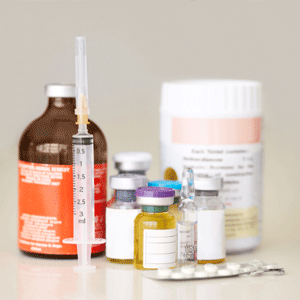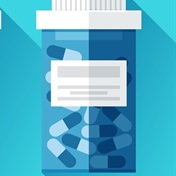
Hundreds of people from around the world joined online and in-person – from industry, government, civil society groups, multilateral organisations and academia – to discuss the solutions and barriers to increasing access to medicines, vaccines and diagnostics and promoting innovation in health technologies.
Policy incoherence
“This is an emergency. It doesn’t matter where you live, people are dying every day in rich and poor countries because they can’t afford or access the health services they need,” said Michael Kirby, member of the High-Level Panel and chair of the Expert Advisory Group.
“When we look back at the HIV epidemic, the ground reality changed when Yusuf Hamied and Festus Mogae, members of this panel, and others dramatically reduced the cost of treatment, which meant low- and middle-income countries could afford them.”
Read: Know when it's necessary to take antibiotics
The Panel was convened in November 2015 by Secretary-General Ban Ki-moon to address the policy incoherence between intellectual property laws and access to health. With representation from the private and public sectors, as well as from civil society, participants openly analysed issues such as the tensions between intellectual property laws and access to medicines.
“If we had today’s laws in 2000, I guarantee 10 million more people would have died from HIV/Aids,” warned Yusuf Hamied, Chairperson of Cipla. “There are today 160 drugs that are off patent in America and there is no second manufacturer. Albendazole, for example, costs two cents in the rest of the world. In America, $240 a tablet.”
Watch: The livestream of the London Dialogue
Due to the complexity of the task, the Panel issued an open “Call for Contributions” asking stakeholders from every field to submit their ideas on the issue. The Panel received more than 170 contributions and throughout the dialogue, participants discussed how old and new mechanisms – such as medicine patent pools, public-private partnerships, and alternative sources for R&D financing could be utilised to increase access to medicines without jeopardising innovation.
Read: We are taking antibiotics too easily
“In terms of innovation the patent system has been highly effective in incentivising biopharmaceutical research and development and in developing new medicines and tomorrow’s cures,” said Corey Salsberg, Head International IP Policy at Novartis. “I’m not here to say the patent system is perfect, but the patent system does work for what it was designed to do.
Potential answers
There are gaps in unmet medical needs and gaps in some areas of access, but what we should be doing is building on the successes of the patent system not dismantling the parts that have worked.”
The concept of delinkage was put forward by several groups as a way of separating research and development, on one side, from production and distribution, on the other side of the health equation.
Read: Seven hard facts about antibiotics we all need to swallow
“There are a substantial number of potential answers to this question. R&D costs can be financed through government subsidies and grants, the awarding of prizes to successful innovators, through mechanisms designed to provide tax incentives,” said Frederick Abbott, co-chair of the Committee on Global Health Law. “Delinking R&D and production does not mean companies won’t be able to make substantial profits through successful innovation.
"This all depends on how much one decides to spend on innovation. In principle, pharmaceutical companies can earn very substantial returns from subsidies or prizes paid for the successful development of a new medicine, vaccine or diagnostic.”
While the London Dialogue represented the largest interactive event hosted by the Panel, it was not the first. In an effort to increase the breadth of the contributions received and ensure cross-sectional conversation at the dialogues, the Panel has already held four briefings during the last two months, including two member state briefings, a briefing for civil society, and a private sector briefing.
The Panel will now travel to Johannesburg, South Africa, for a further dialogue before the Panel authors its report, which will be released in June 2016.
Read more:
Global drug makers call for action on superbugs
Rogue pharma boss arrested in New York
South Africa is facing a superbug epidemic
Image: A mass of medicine from iStock




 Publications
Publications
 Partners
Partners















